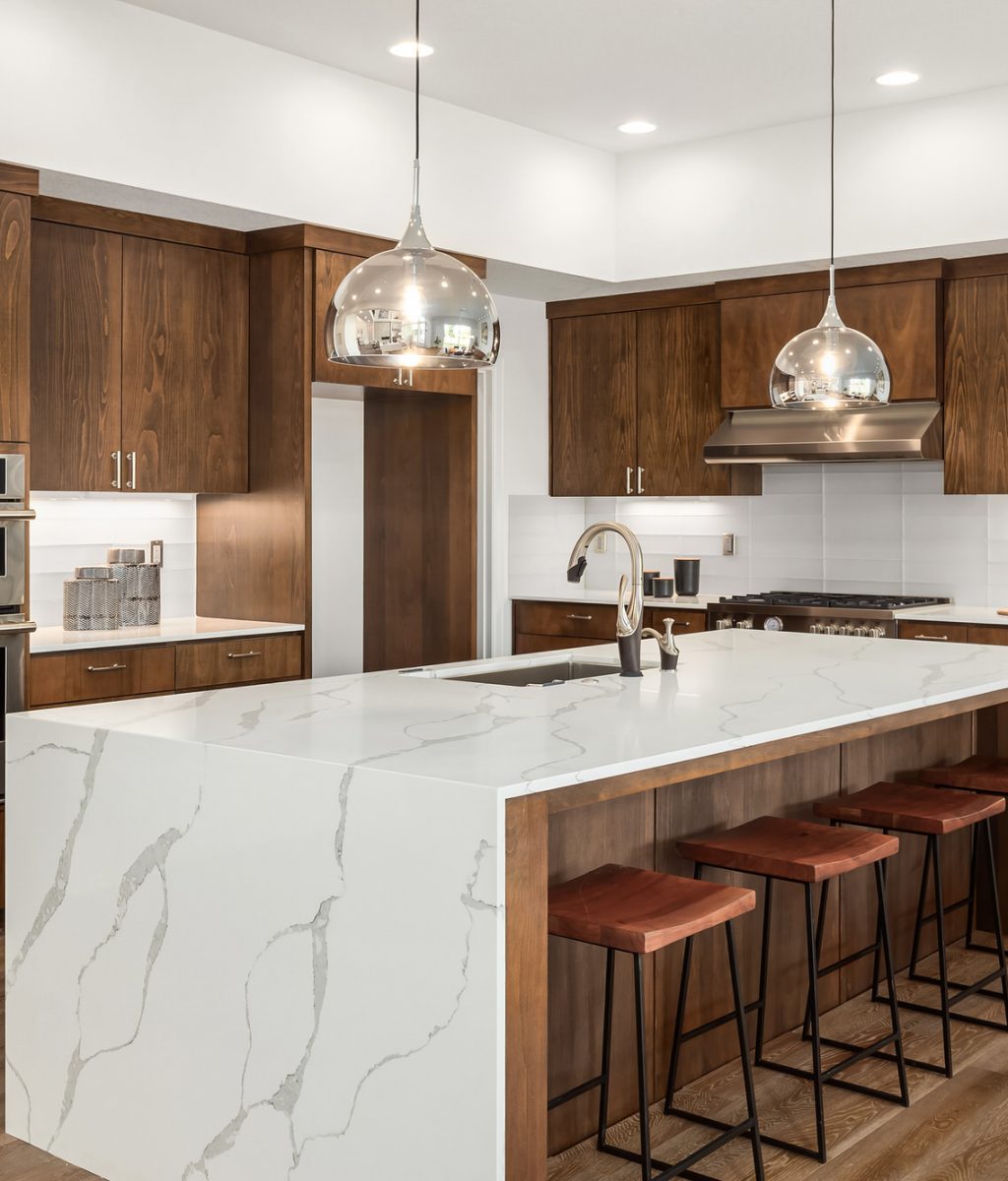Soapstone is mined from quarries located all over the world including Quebec City, Central Virginia, Canada, Brazil, India and Finland.
Soapstone countertops are most commonly sold with a honed finish which has a smooth, non-reflective finish. Other finishes are also available, such as a leathered finish that you commonly see with granite.
To maintain color, a periodic application of mineral oil is the only maintenance that is recommended, but not required. Over time, soapstone countertops develop a patina which gives it a rich, antique character.
Because soapstone consists of talc, the countertop surface is softer to the touch than most natural stone countertop materials. However, that does mean that it’s more susceptible to wear and tear than its counterparts.
While not as hard as granite, soapstone is more pliable which means it is less brittle, so it won’t crack unexpectedly from stress or weight. Also, soapstone countertops are very non-porous and are much less likely to stain from liquids such as wine or oil.
Soapstone countertops are known to age well and can last for many generations. If the countertops sustain any scratches, you can either sand them out or leave them as a part of the natural patina of the stone.
Because soapstone is so dense, it does not require using a sealant at any point throughout the life of the stone. If you choose, you can apply a mineral oil which will enhance the color of the stone.

